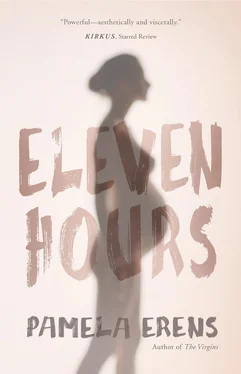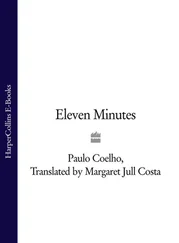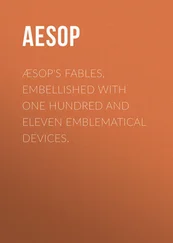Pamela Erens - Eleven Hours
Здесь есть возможность читать онлайн «Pamela Erens - Eleven Hours» весь текст электронной книги совершенно бесплатно (целиком полную версию без сокращений). В некоторых случаях можно слушать аудио, скачать через торрент в формате fb2 и присутствует краткое содержание. Год выпуска: 2016, Издательство: Tin House, Жанр: Современная проза, на английском языке. Описание произведения, (предисловие) а так же отзывы посетителей доступны на портале библиотеки ЛибКат.
- Название:Eleven Hours
- Автор:
- Издательство:Tin House
- Жанр:
- Год:2016
- ISBN:нет данных
- Рейтинг книги:4 / 5. Голосов: 1
-
Избранное:Добавить в избранное
- Отзывы:
-
Ваша оценка:
- 80
- 1
- 2
- 3
- 4
- 5
Eleven Hours: краткое содержание, описание и аннотация
Предлагаем к чтению аннотацию, описание, краткое содержание или предисловие (зависит от того, что написал сам автор книги «Eleven Hours»). Если вы не нашли необходимую информацию о книге — напишите в комментариях, мы постараемся отыскать её.
Eleven Hours
Eleven Hours — читать онлайн бесплатно полную книгу (весь текст) целиком
Ниже представлен текст книги, разбитый по страницам. Система сохранения места последней прочитанной страницы, позволяет с удобством читать онлайн бесплатно книгу «Eleven Hours», без необходимости каждый раз заново искать на чём Вы остановились. Поставьте закладку, и сможете в любой момент перейти на страницу, на которой закончили чтение.
Интервал:
Закладка:
“I am here!” cries Lore to the policewoman. “I am here!” But she cannot explain what she is here for . She pushes the tip of her tongue between her front teeth. She holds a tongue depressor crosswise between her lips. She sucks on a great straw. S is S as in Sock. Sh is Sh as in Shoe .
The drugs toss her, float her on dreams of paralysis. She is trussed up in ropes. She spins in a black atmosphere. She sees Soleil, bound in strong nylon wires to a white crib: she must rescue her. Soleil! Soleil! Lore’s lips move rapidly, she calls out, and the nurse by her side pats her hand and strokes her arm until she settles again. Even sunk as she is, she grasps at the notion that there is some outside to the universe in which she now tumbles, that she must struggle up and pierce the shroud to meet it. She sinks back down, into darker dreams of horned shadows passing along a wall, of a heartbeat loud enough to rock her trapped body like a rowboat in a squall.
The nurse strokes her arm, adjusts the Dilaudid drip, notes in the log Lore Tannenbaum’s pulse.
Down the hall two doctors eat dinner in the conference room. Dr. Lee: a vegetable soup and chicken stir-fry made by his wife, also a doctor. Dr. Glendinning: supermarket lasagna. They often take their dinner together, methodical eaters who like having a companion to whom they need not speak. For hours they have torn flesh open and sealed it up again; they have inflicted pain and quieted it; they have upheld life and prolonged dying. They are gods at the feast after the Games, but instead of the homage of slaughtered and fragrantly roasted animals, here is ground beef layered between ribbons of precooked semolina; instead of great bowls of wine, there is Dr. Lee’s astringent green tea. There are no crowds, no toasts, no dances stepped to their honor. They ask for so much less — a few moments of quiet, a small heap of calories to enable them to continue. They do not need to figure in the songs of poets.
Dr. Glendinning gets up to find some salt. Dr. Lee pours the remains of his warm tea down the sink.
The day’s weary are leaving — on subways, in cabs, by foot — and the fresh healers are coming in. The nurses arrive at their charge desks, orderlies check in with supervisors. Natalie Komlosky, age two, is curled up asleep at the bottom of her mother’s bed, having briefly met her new baby brother and been told her mother cannot hold her because of her stitches. She dreams of strawberries and a basket of soft leaves, and of a pink ball she lost last week that now rolls to her from a hidden corner. In the morning she will know: no matter what losses are visited upon us in the waking day, our nights will always comfort and recompense us. Natalie will always love the night now: its inventions, its richness, its sympathy. There are creatures of the day (alert, energetic, strict, practiced in loss) and there are creatures of the night (rebellious, vague, imaginative, greedy), and Natalie moves to join the night creatures, receives their hot, loyal embrace.
Arthur Niccoli, seventy-seven, dozes in his bed. They took out the tumor in his right lung, the size of a walnut; a very clean operation, the surgeon said. Arthur supposes it is good to be still alive; he supposes it is worth it even though Maria is gone, her gentle snoring next to him in bed, the swell of her ample hip. She would have been seventy-five this May. She is gone and so is the past they had together. How he once ran up steep streets simply to feel his body pitch against the wind; how strong his hands were with a hammer or spade. Great too was the alchemy of children, the making and shaping of them, watching them grow tall and free. He supposes there remain, still, sunlight across the carpet in the morning and the comfort of good socks at night when you are reading about Churchill or Khrushchev (reading about Churchill in bed is no small pleasure), and the grandchildren who remind you of what it was like once, when you had sap and the world seemed to tumble out of the sky anew each morning. He slides an eye over to George, sprawled in an armchair, his long legs halfway to the bed. His son is frowning at his laptop and pecking at the keys. He might be writing an office memo or he might be playing one of those crazy games even the grown-ups waste their time on now. Arthur Niccoli smoked for fifty-two of his seventy-seven years; surely in a couple more the doctors will have to go inside him again, and it will be worse next time, the growths elongated and bound more tightly to the organs. At first he’d refused even this operation. Let the tumor take its chances with me, he said. But George and Mimi had coaxed and begged, how they coaxed and begged! It was enough to make you wish you were dying all the time, to see how much your children wanted to keep you around. I did it for you, he thinks wearily, you selfish children, you grandchildren. I did it for you, Dr. Canberra, so as not to injure your pride. He recalls the woman he saw this morning as he was wheeled to surgery: a great madonna in blue scrubs, her hand on her enormous belly. She’d wandered with her nurse into Pulmonary like a visitation from another planet. Why, he’d wondered as the young nurse pushed his wheelchair by — why keep me, when what I am passing now is the real thing, the true event: this swollen belly with the hand powerless to hold the great force in. In a matter of hours someone new would be alive in the world. When he was coming out of sedation, Arthur saw the blue-scrubs madonna again. Her belly was split open to reveal a spinning globe. There were dark blue seas and green lands. He thought: I will be gone soon, but she will carry things on for me. Why can’t they understand, the children and grandchildren and the doctors, that she will carry things on for me?
Dr. Merchant, on a double shift tonight, examines a new admit to the ward. His hands tremble as he pulls on his gloves. Why shouldn’t they? The flesh is weak and the mind troubled until one has seen much more of disaster and death. Dr. Mankowitz asked him a number of questions. What had occurred just before the hemorrhage? How deeply did he probe when he broke the patient’s water? As Dr. Mankowitz took down his answers, Dr. Merchant could see that the older man judged the thing to have been inevitable, that he pursued his points merely for the sake of the weekly meeting in which the surgeons and residents would review the problem cases, the near-misses and the disasters. Dr. Mankowitz will have to speak to what happened with Lore Tannenbaum, and Dr. Merchant may also be asked to respond. But if Dr. Mankowitz doesn’t fault him, if he does not fault himself, why does he feel such dread? He puts two fingers inside the woman on the table, as gently as possible. It is terrible to be here inside another woman. It is somehow not right. He should have gone for a cup of coffee. He should be home watching television with his wife. Adrenaline churns, propping him upright, making his fingers and hands crackle with painful electricity. (“Four centimeters,” he tells the patient.) There are eleven hours and twenty minutes until the morning.
A man in shirtsleeves chants softly by his laboring wife, who takes his hand and lets the vaguely familiar music wash over her. It is not lucky to have a baby on Shabbat, her husband once told her, then apologized, saying it was an old superstition, nothing to dwell on, but it stuck in her head and now that the sun has gone down on this Friday night, she cannot forget it. She was not raised religiously but her husband was, in another life. Now he prays, knowing that the God he normally does not believe in will forgive him for this appeal that is driven by fear and a strange nostalgia. He petitions God for the safe passage of his son into the world, for his wife’s suffering to be brief. But mostly, as he was taught long ago, he prays to praise God, designer of the universe, giver of life and will and knowledge of the right. Do not ask for too much from this God, who is beyond our petty pleadings and who knows what role he has designed us to play in his Creation. Mi chamocha, ba’elim, Adonai — Who is like You, Lord, among the gods that are worshipped? Who is like You, glorious in holiness, awesome in splendor, working wonders?
Читать дальшеИнтервал:
Закладка:
Похожие книги на «Eleven Hours»
Представляем Вашему вниманию похожие книги на «Eleven Hours» списком для выбора. Мы отобрали схожую по названию и смыслу литературу в надежде предоставить читателям больше вариантов отыскать новые, интересные, ещё непрочитанные произведения.
Обсуждение, отзывы о книге «Eleven Hours» и просто собственные мнения читателей. Оставьте ваши комментарии, напишите, что Вы думаете о произведении, его смысле или главных героях. Укажите что конкретно понравилось, а что нет, и почему Вы так считаете.












